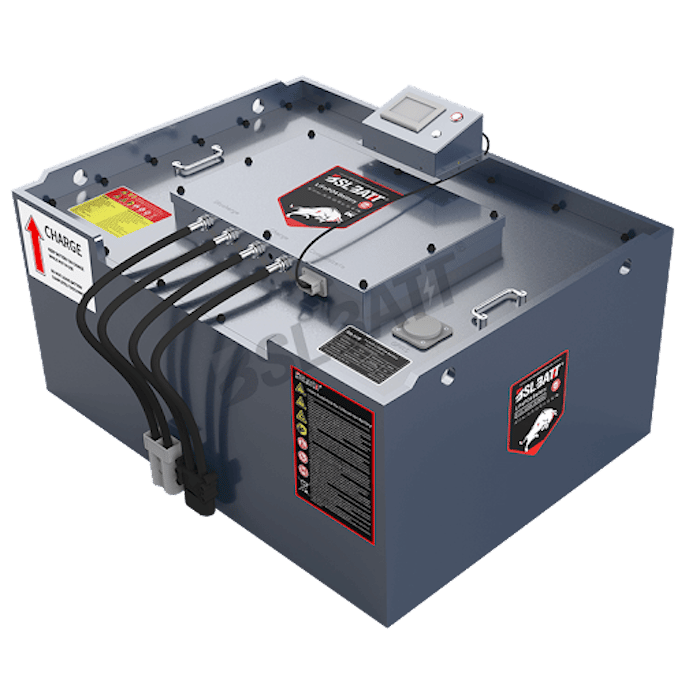Table of Contents
If you’re in the market for a new forklift battery, it’s important to know the differences between the two main types of batteries available: lithium ion and Yale. In this blog post, we’ll discuss the pros and cons of each type, so that you can make an educated decision about which one is best for your needs. Read on to find out more!
Lithium ion forklift battery Vs yale forklift battery
Lithium ion batteries are becoming increasingly popular in a variety of industries, including the forklift industry. But what exactly is the difference between a lithium ion forklift battery and a yale forklift battery?
For one, lithium ion batteries are significantly lighter than yale batteries. This is due to the fact that lithium ion batteries use a lighter metal for their anode, which is the negatively charged electrode. This makes them ideal for electric vehicles or other applications where weight is a major concern.
In addition, lithium ion batteries have a higher energy density than yale batteries. This means that they can store more energy in a given volume, making them ideal for applications where space is limited.
Finally, lithium ion batteries have a higher discharge rate than yale batteries. This means that they can provide more power over a shorter period of time, making them ideal for applications where high levels of power are required.

How lithium ion batteries work
Lithium ion batteries are becoming increasingly popular in a variety of industries, including forklifts. So, how do they work?
Lithium ion batteries work by storing energy in the form of lithium ions. When the battery is discharged, the lithium ions flow from the positive to the negative electrode, producing an electric current.
When the battery is recharged, the process is reversed and the lithium ions flow back to the positive electrode. This makes lithium ion batteries much more efficient than traditional lead-acid batteries.
There are a few key benefits of using lithium ion batteries in forklifts:
- They have a longer life span – Lithium ion batteries can last up to twice as long as lead-acid batteries, making them a more cost-effective option in the long run.
- They require less maintenance – Lithium ion batteries don’t require regular watering like lead-acid batteries do, so you’ll save time and money on maintenance.
- They have a higher power density – This means that they can store more energy in a smaller space, which is ideal for forklifts that need to be compact.
- They have a lower self-discharge rate – Lithium ion batteries retain their charge better than lead-acid batteries, so you won’t have to worry about them losing power when not in use.
Lifespan of the Yale Forklift Battery vs. Lithium Ion Forklift Battery
The average lifespan of a Yale forklift battery is about 1,500 hours. In contrast, the average lifespan of a lithium ion forklift battery is about 3,000 hours. That means that, on average, a lithium ion forklift battery will last twice as long as a Yale forklift battery.
Advantages and disadvantages of the two types of battery
There are two main types of batteries used in forklifts: lithium ion and Yale. Each type of battery has its own advantages and disadvantages that should be considered when choosing which type of battery is right for your forklift.
Lithium ion batteries are the newer technology, and as such, they offer a number of advantages over Yale batteries. Lithium ion batteries are lighter weight, which makes them easier to handle and less likely to cause injuries if dropped. They also have a longer lifespan than Yale batteries, meaning they will need to be replaced less often. Finally, lithium ion batteries can be charged more quickly than Yale batteries, so you can get back to work faster after a break.
However, lithium ion batteries also have some disadvantages. They are more expensive than Yale batteries, both upfront and over the course of their lifetime. In addition, lithium ion batteries are more sensitive to temperature changes than Yale batteries, so they may not perform as well in extreme cold or heat.
Yale batteries have been around for longer and are thus more proven technology. They offer the advantage of being less expensive than lithium ion batteries, both upfront and over their lifetime. Yale batteries are also less sensitive to temperature changes than lithium ion batteries, so they may perform better in extreme cold or heat. However, Yale batteries are heavier than lithium ion batteries, which can make them more difficult to handle and more likely to cause injuries if dropped. In addition, Yale batteries have a shorter lifespan than lithium ion batteries and take longer to charge, so you will need to replace them more often and wait longer for them to be ready to use.


